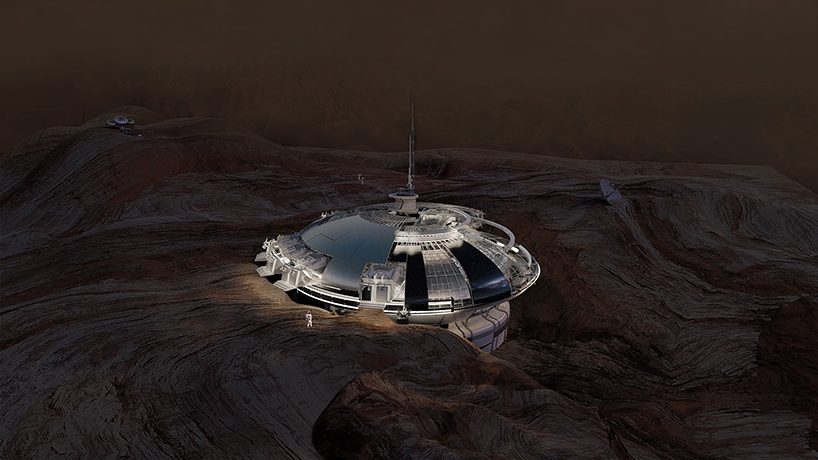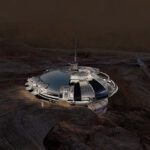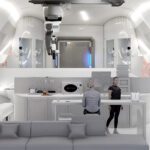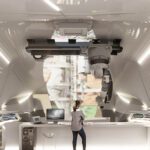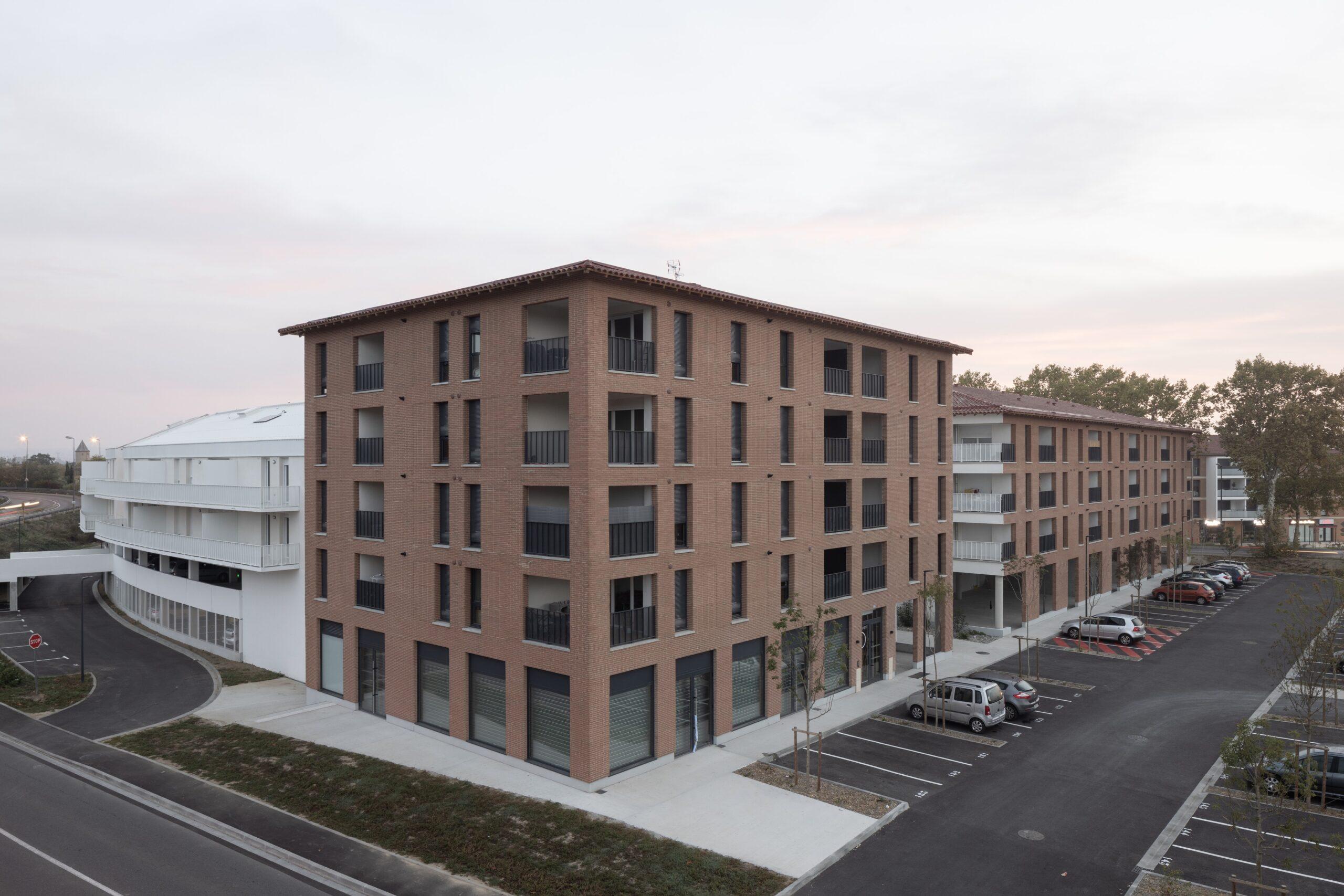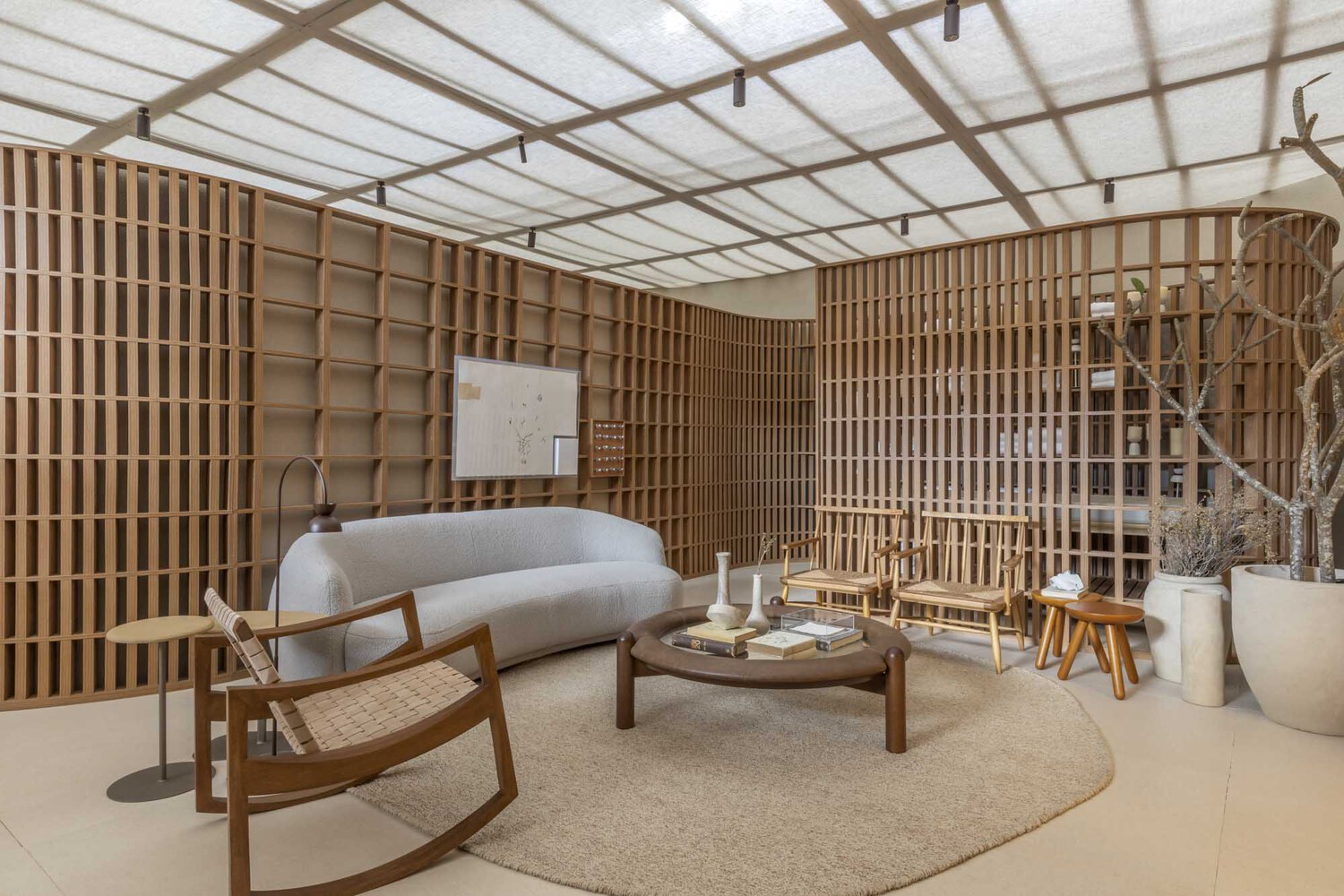Mars
2022
@zeynepege + @burak.celikk + @nazkaplan
Genesis v.2 is an extraterrestrial design prototype for a housing colony on Mars, designed by architects Burak Celik, Naz Kaplan and Zeynep Ege Odabasi. Within the framework of building a sustainable system that has the ability to respond to the current and upcoming conditions on the Red Planet, the project establishes an adaptable system that might adjust to new colonization scenarios for Mars. Through its circular form sitting on the natural craters of Mars with minimal footprint, and a unit system that is responsive to the growth of the colony as well as the crater size, the design represents a foreseeing solution towards approaching Martian settlements.
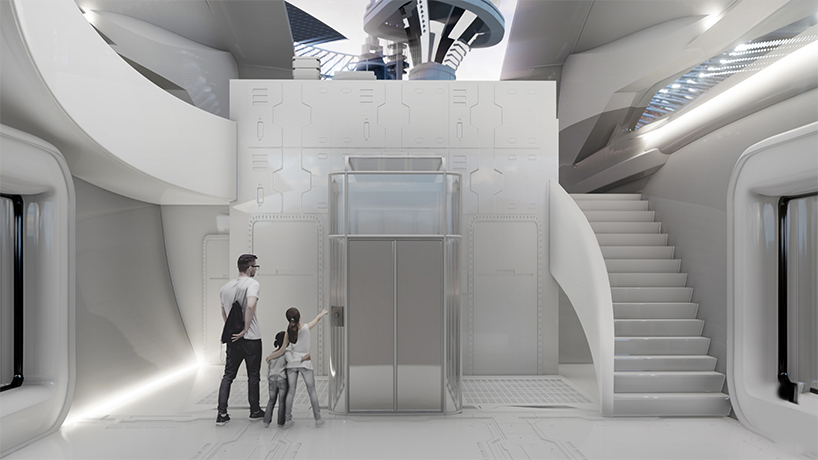
Throughout history, we built a growing curiosity towards space and its potential, meanwhile neglecting our planet and consuming its resources way before we should have. While this irresponsibility towards our nature has been causing serious issues on earth, mankind’s search for life on other planets started to target building colonies out there for our future existence. Ever since learning that Mars has water, our focus became exploring more about the Red Planet and developing systems to survive there, but this time with a sustainable approach.
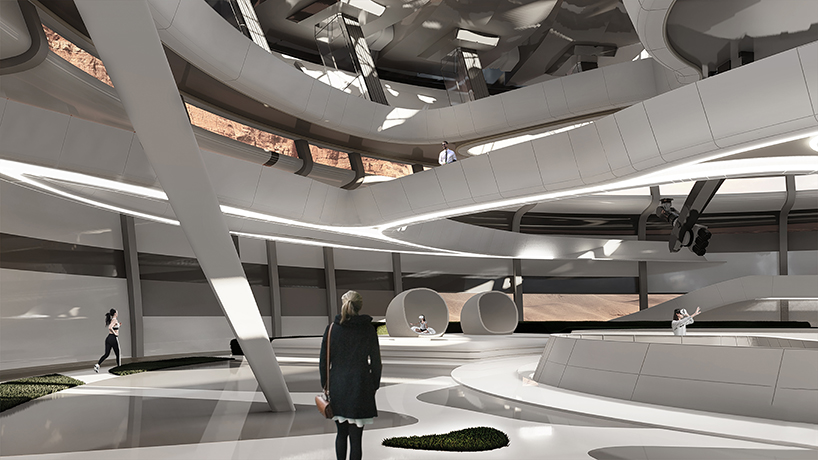
If there will be a second chance on Mars, it should appreciate nature as well as the existence of the planet, through the delicate balance between consumption and production, with the lowest mark possible on the planet. Therefore, named after the Genesis mission of NASA that was searching for our cosmic origins, now Genesis v.2 aims at continuing the mission of its ancestor, by taking the next step to spread our origins to another cosmic planet, with the knowledge and lessons learnt about a sustainable future from our past on Earth.

One of the keystones in the concept is to reflect an incomplete aesthetic depicting our limited knowledge towards building a future in space, and pointing out how to strategize against the exciting yet unpredictable possibilities our journey on Mars might encounter. With this concern, the project settles on craters which helps not only to implement its adjustable structure system but also locate on a relatively-low radiation zone that is of the greatest problems in the Martian environment. To elaborate more, a ring system occurring around a main production/circulation tower is developed and through adjusting the ring radius, the settlement can be located on craters with varying dimensions.
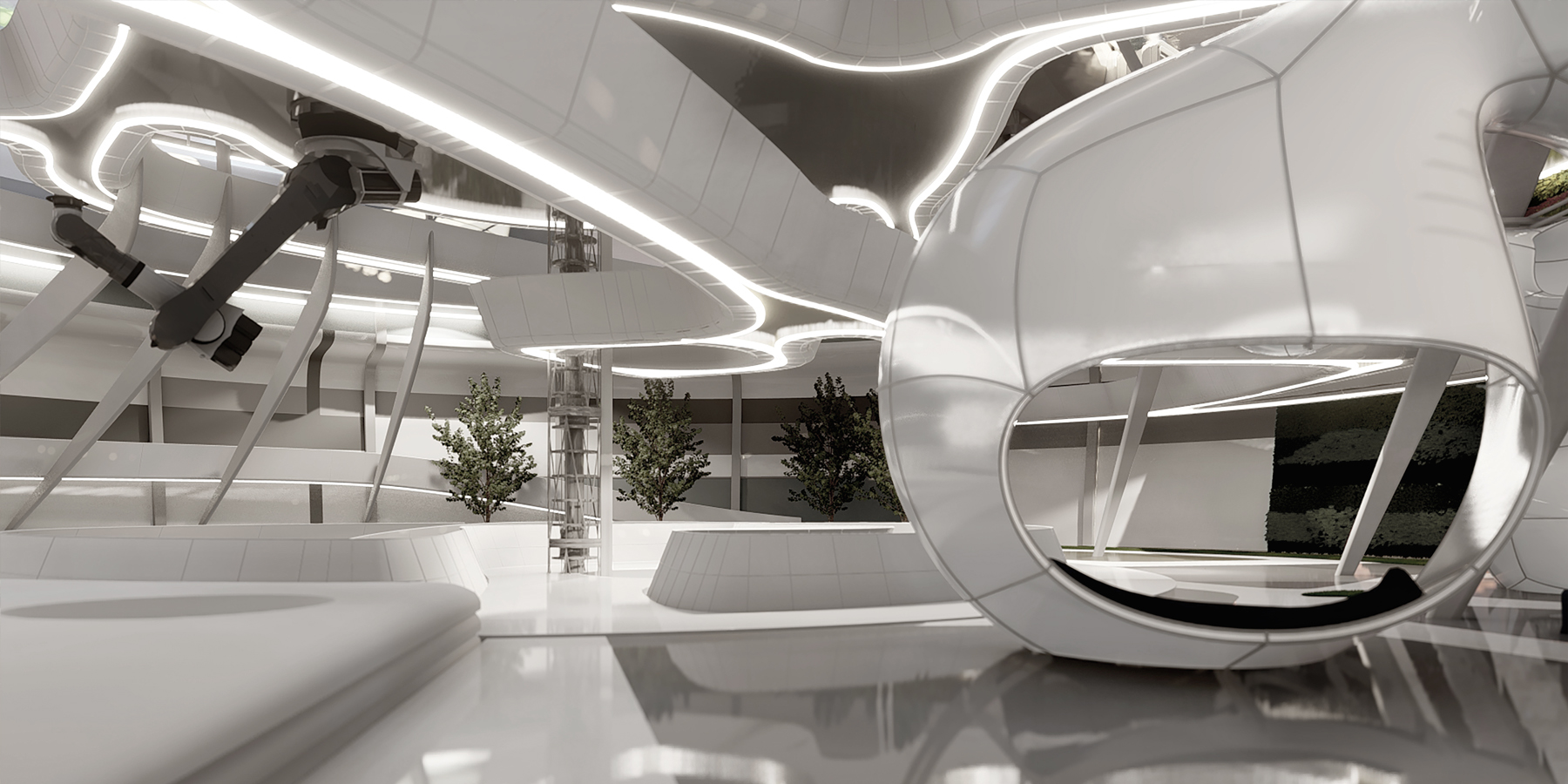
Targeting to minimize our footprint and maximize the efficiency in adapting the settlement to different craters, the main structural stability is achieved only by the connection joints around the main ring that attaches to the crater and a screw-like end of the main tower that is nailed to the lowest level of the crater. These two, the outer ring onto which the units are placed and the central tower from which the production and circulation happens, are the backbones of the design development. Therefore, when relocation is needed due to a colony growth, the structure will be easily detached, the main ring expanded allowing a longer path with more units, and without any other intervention Genesis v.2 will re-attach to a bigger crater.

Diving deeper into the design development, we observe the main aim of the design, that is providing maximum possible production for the colony with the minimum resources. To achieve this goal, an adaptive/dynamic perspective for the settlement takes control, letting the structure respond to the changes in light, temperature, and other weather conditions through repositioning its parts. This ever-lasting search of Genesis v.2 for finding the best location is to serve the production within its system, where various sustainable energy technologies are used as well as biofuel production via algae farming.
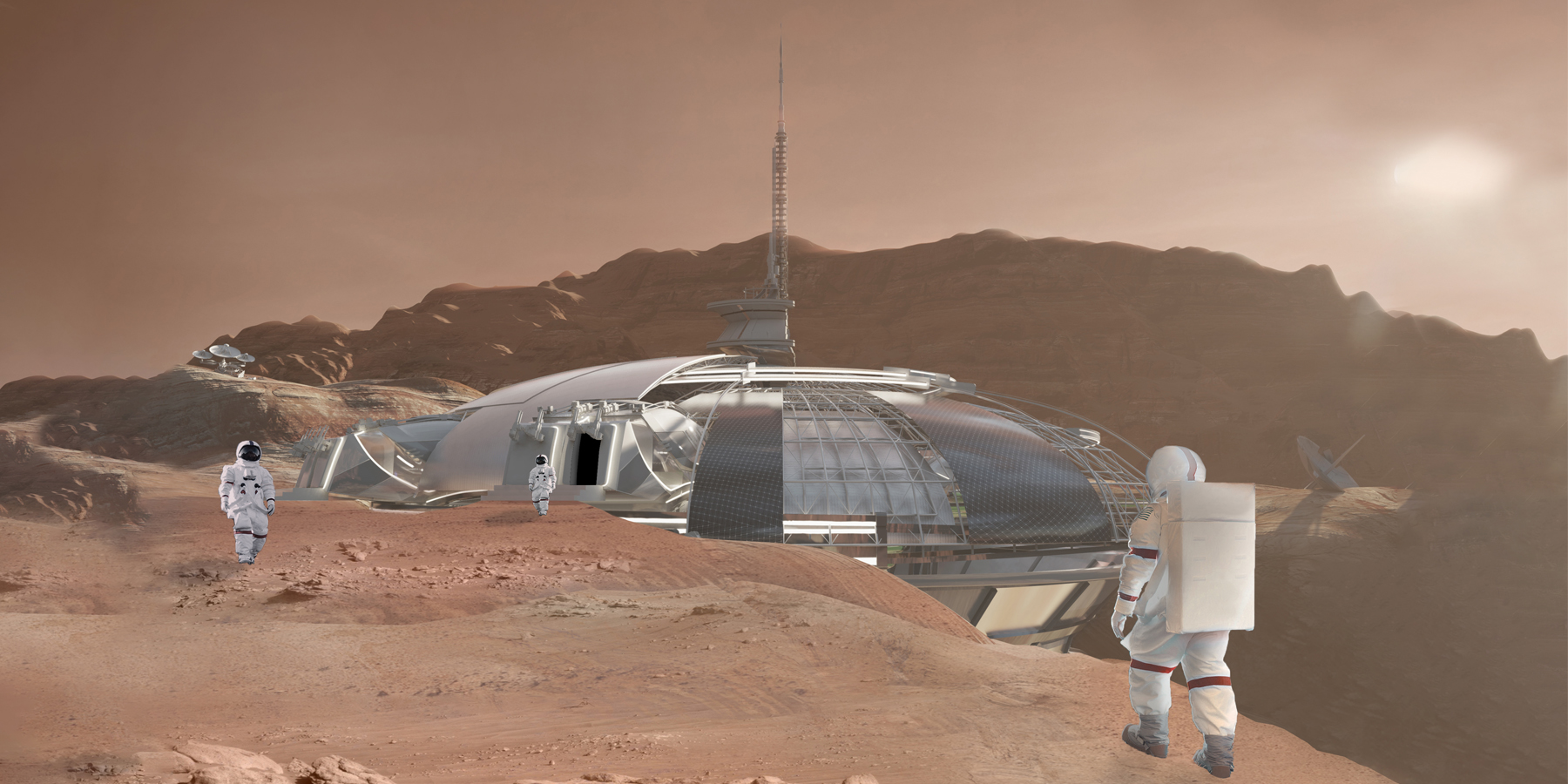
Genesis v.2 thrives to reflect how our first steps into a new world should be: sustainable to establish a respectful relationship between us and the new home and adaptable to different scenarios humanity could face in this new home to achieve the maximum efficiency in expanding our community towards a bright future.


